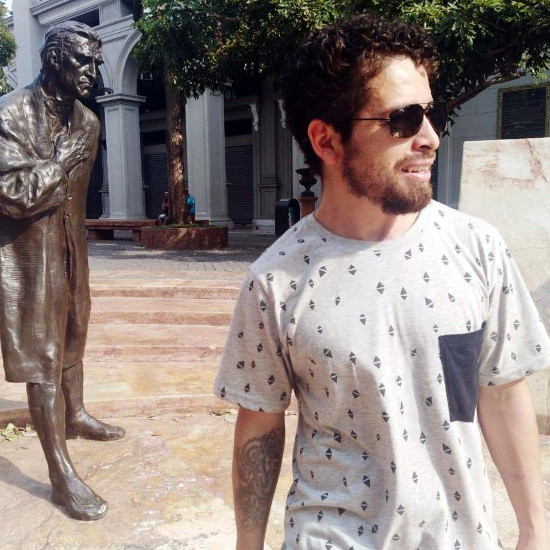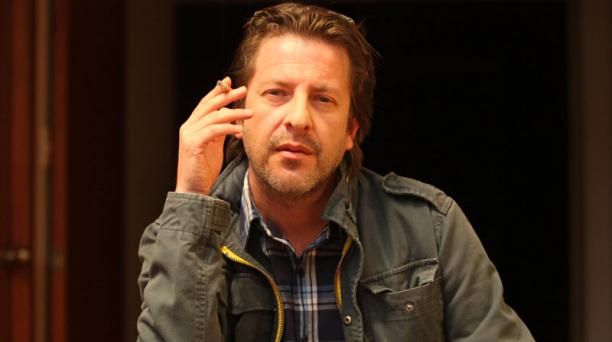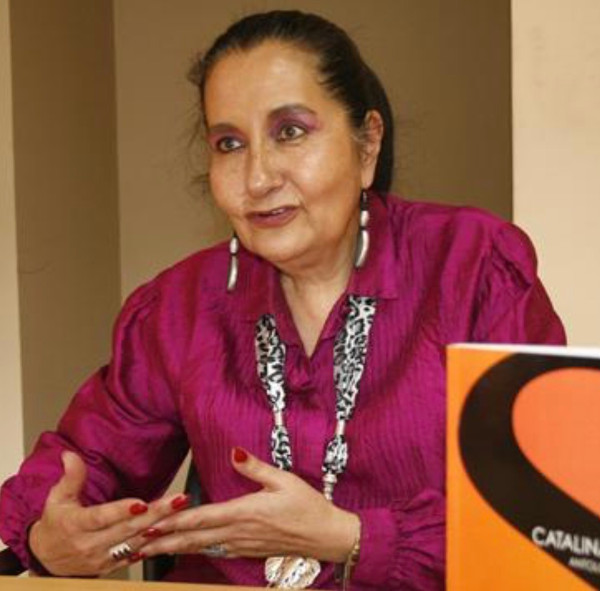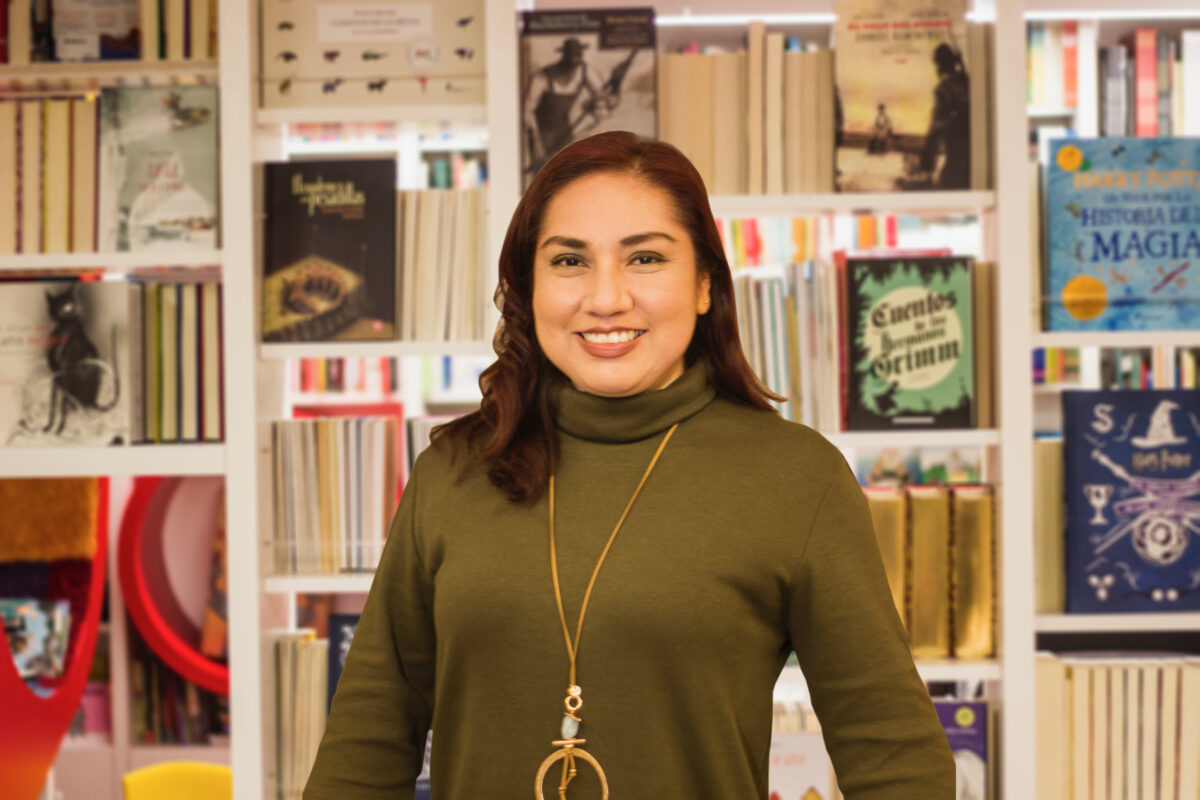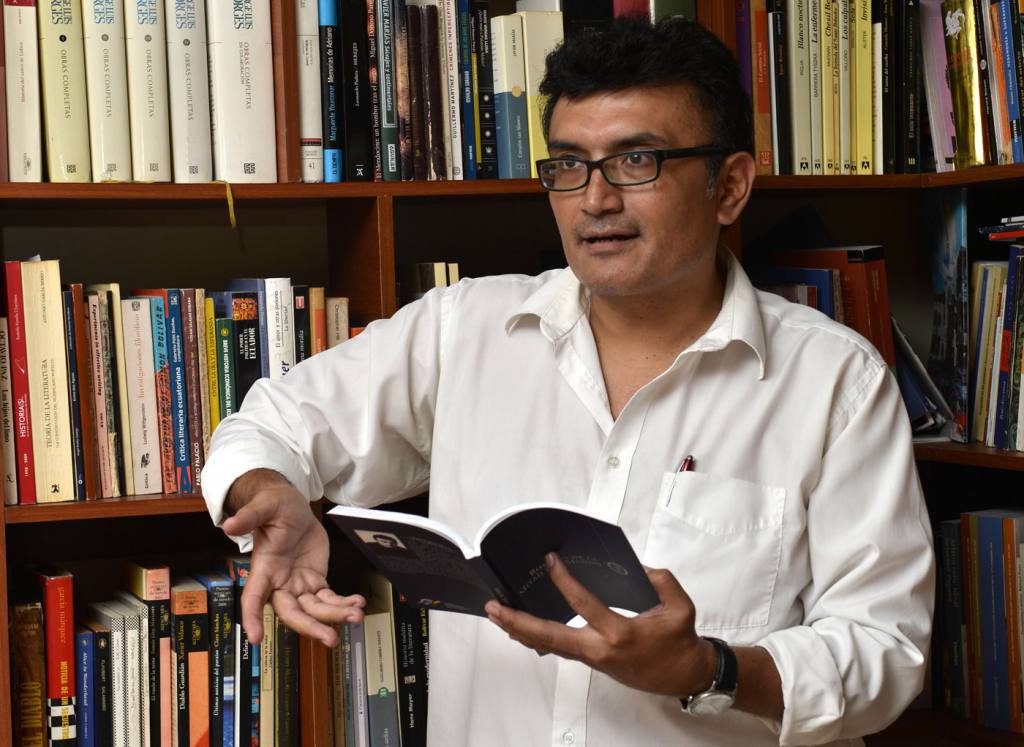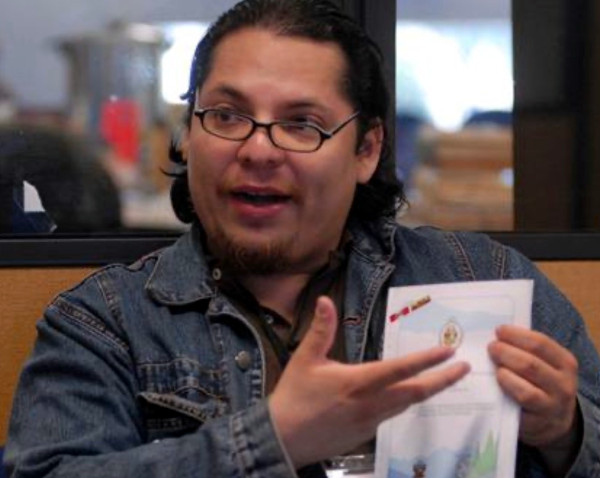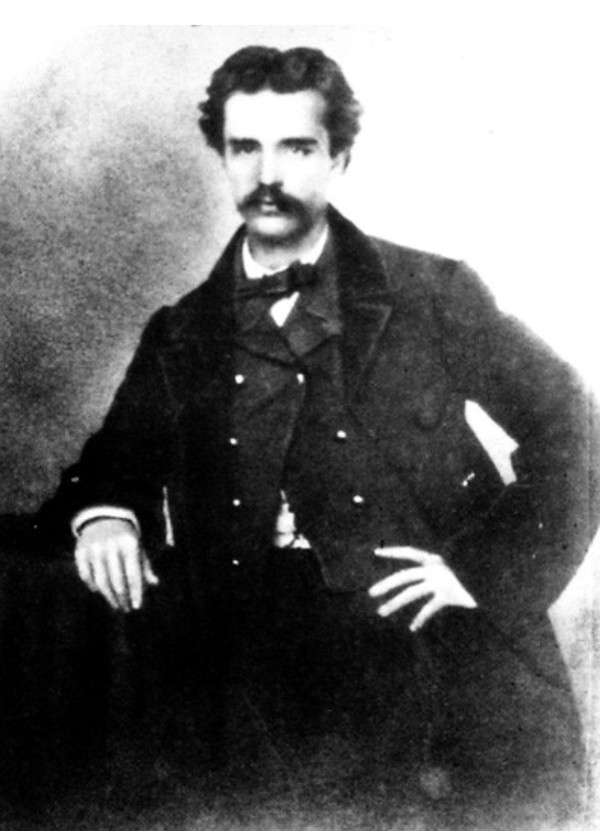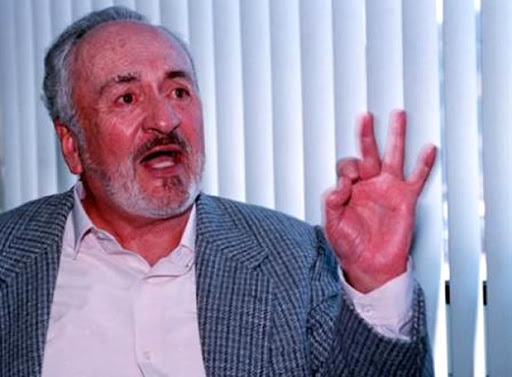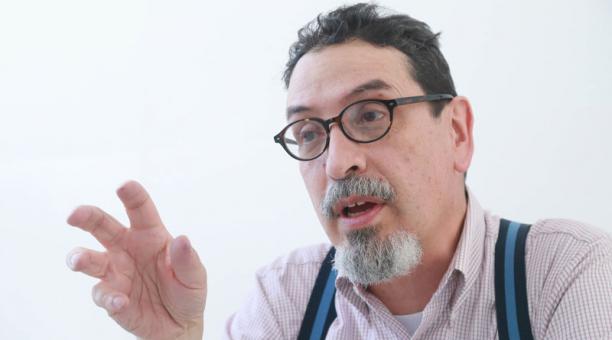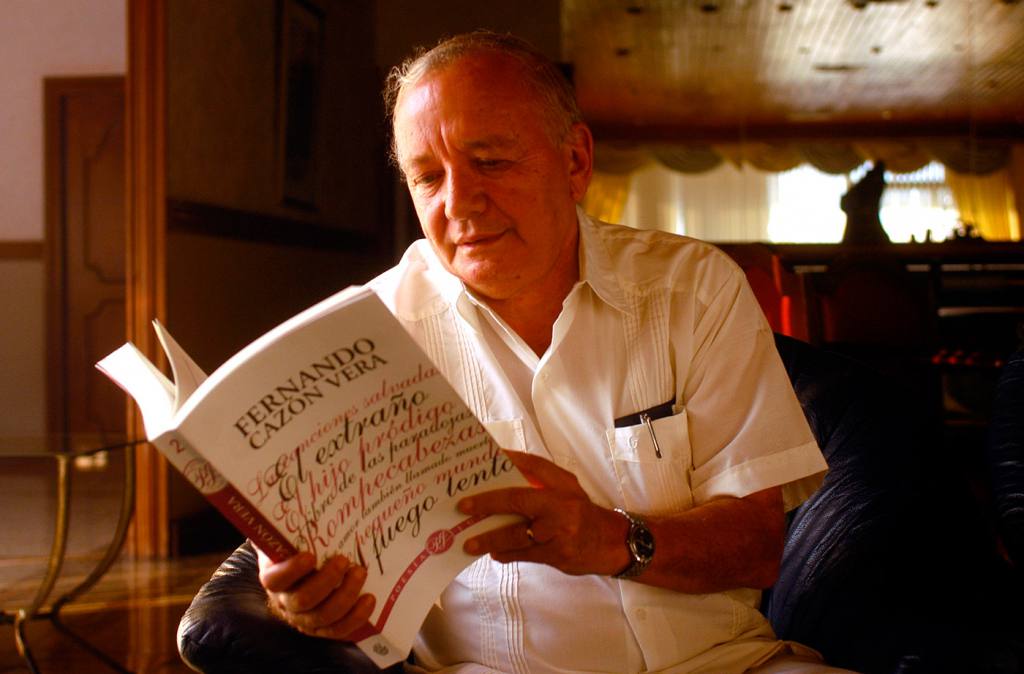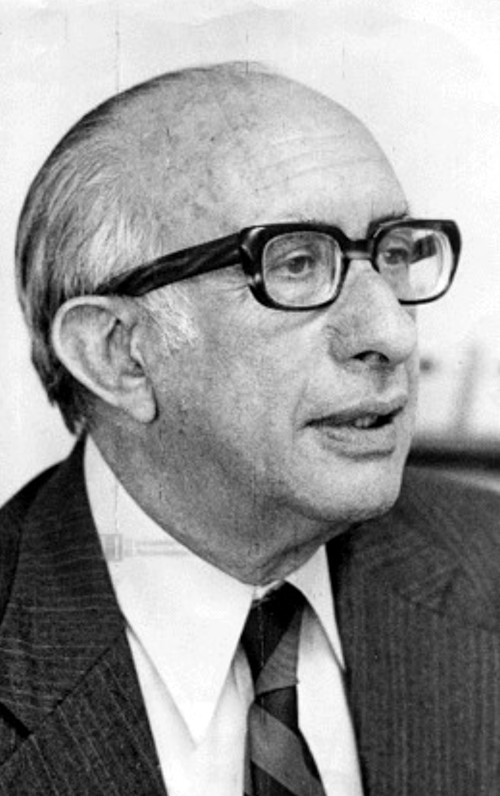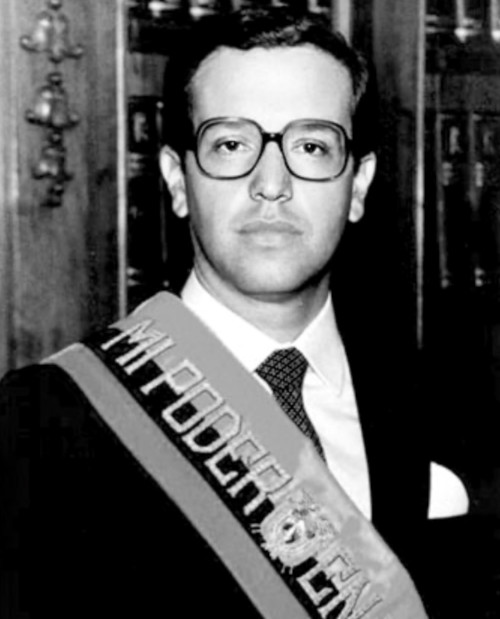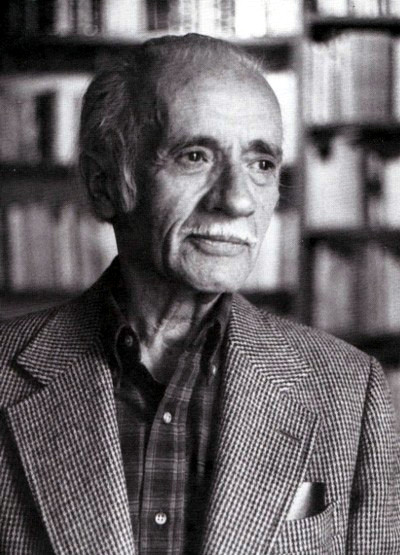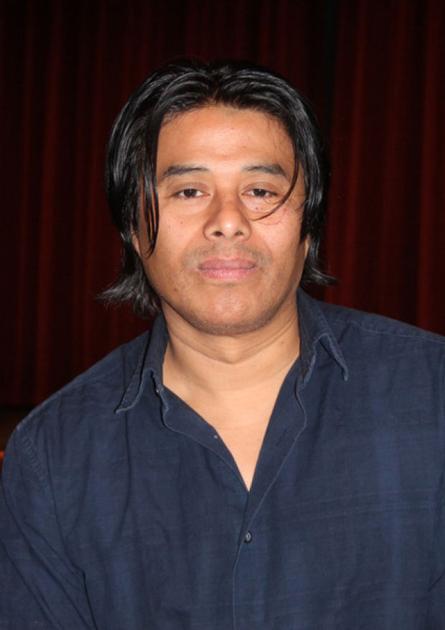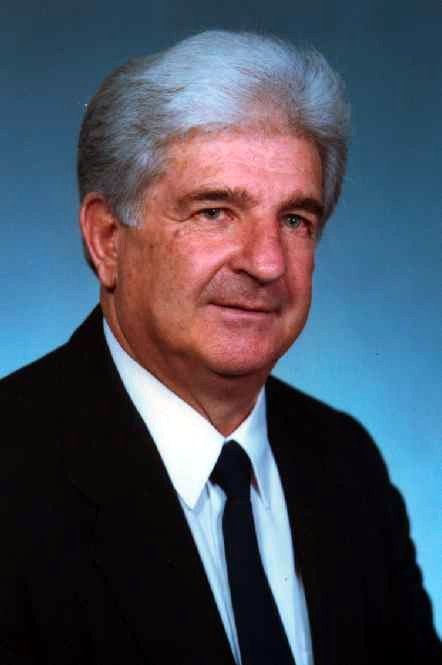Edwin Augusto Paredes Paredes is an Ecuadorian poet. He was born in Loja 1988. His poetry has appeared on blogs, online magazines and national and international anthologies. In 2019 the House of Ecuadorian Culture, Loja chapter, published his book Vacuidad. In 2018 his poetry book Génesis del polvo won the Ileana Espinel Cedeño National Poetry Prize.
Continue reading “Edwin Augusto Paredes”Author: richard
Cristóbal Zapata
Cristóbal Zapata is an Ecuadorian poet, editor, literary critic, and art curator. He was born in Cuenca in 1968. He is currently the executive director of the Municipal Biennial Foundation of Cuenca. He has published the poetry books Corona de cuerpos (1992), Te perderá la carne (1999), Baja noche (2000), No hay naves para Lesbos (2004), Jardín de arena (2009), La miel de la higuera (2012) and El habla del cuerpo (2015); and the book of short stories El pan y la carne (2007), which won the prestigious Joaquín Gallegos Lara National Literature Prize.
Continue reading “Cristóbal Zapata”Catalina Sojos
Catalina Sojos Mata (Cuenca, 1951) is a poet, writer, columnist, author of children’s literature, and a translator. In 1989, at the age of 37, she published her first poetry book: Hojas de poesía. She has been awarded the Gabriela Mistral National Poetry Prize, 1989, and the Jorge Carrera Andrade Prize, 1992. She is currently the director of the Manuel A. Landívar Museum in Cuenca, Ecuador.
Continue reading “Catalina Sojos”Solange Rodríguez
Solange Rodríguez Pappe (Guayaquil, Ecuador, 1976) is an Ecuadorian writer and professor known for her short fiction in the genres of fantasy, horror, and the strange. She has published several acclaimed collections, including Balas perdidas (2010), which won the Joaquín Gallegos Lara Award for Best Storybook of the Year. A longtime educator, Rodríguez has also been honored with the Matilde Hidalgo Prize for her academic career. Her works often explore themes of the fantastic and macabre, and have been translated into multiple languages, gaining international recognition.
Continue reading “Solange Rodríguez”Luís Carlos Mussó
Luís Carlos Mussó (Guayaquil, March 17, 1970) is an Ecuadorian poet and novelist. His first novel Oscurana (2012) won the Felicísimo Rojas Literary Prize and the Joaquín Gallegos Lara Prize. His latest novel Teoría del manglar (2018) is a work that follows the structure of the periodic table of elements and deals with the death of his father. Among his 8 poetry books, Tiniebla de esplendor (2006) and Mea Vulgatea (2014) have won the prestigious Jorge Carrera Andrade Award.
Continue reading “Luís Carlos Mussó”Miguel Antonio Chávez
Miguel Antonio Chávez Balladares (Guayaquil, June 7, 1979) is an Ecuadorian novelist and short story writer. His first short story book was Círculo vicioso para principiantes (2005). It was followed by the novel La maniobra de Heimlich (2010), the theater piece La kriptonita del Sinaí y otras piezas breves (2013), and the novel Conejo ciego en Surinam (2013). In 2007 he was a finalist for Radio France Internationale’s Juan Rulfo Prize with the story La puta madre patria. In 2011 he was named “one of the 25 best kept secrets in Latin American literature” by the Guadalajara International Book Fair.
Continue reading “Miguel Antonio Chávez”Julio Zaldumbide Gangotena
Julio Zaldumbide Gangotena (Quito, June 5, 1833 – Ibarra, July 31, 1887) was an Ecuadorian poet and politician, recognized as one of the leading figures of 19th-century Romanticism in Ecuador. He began his literary career in 1852 with La Estrella de la Tarde and became known for his contemplative, nature-focused poetry, blending melancholic and philosophical themes. He was also involved in politics, serving as a Deputy and later as Minister of Public Instruction, where he advocated for liberal ideals. He was a founding member of the Ecuadorian Academy of Language. His works were posthumously collected and remain integral to Ecuadorian literature.
Continue reading “Julio Zaldumbide Gangotena”Francisco Granizo Ribadeneira
Francisco Granizo Ribadeneira (Quito, November 8, 1925 – January 21, 2009) was an Ecuadorian poet, professor and diplomat. He was a professor at Ecuador’s Central University and the director of the House of Ecuadorian Culture’s radio station. He published several poetry books, including “Por el breve polvo” (1948), “La piedra” (1958), “Nada más el verbo” (1969), “Muerte y caza de la madre” (1978), “Sonetos del amor total” (1990) and “El sonido de tus pasos” (2005). He also wrote a verse drama, “Fedro” (2005). In 2001, he published his only novel, “La piscina,” for which he received the Joaquín Gallegos Lara Prize for best novel of the year. Through the protagonists Fernando and Lilí, the book examines loneliness and the impossibility of finding love, two frequent themes in Granizo’s works.
Continue reading “Francisco Granizo Ribadeneira”Santiago Páez
Santiago Páez Gallegos (Quito, 1958) is an Ecuadorian writer known for his novels, short stories, and science fiction works. In his youth, he traveled through the jungles of the Ecuadorian coastal region, lived in the mangroves of Esmeraldas province, and explored the highlands of the central inter-Andean region. At the age of 19, he wrote his first novel but was dissatisfied with it, leading him to stop writing for about 11 or 12 years. During his time in Madrid studying and caring for his newborn son, Páez found solace in writing science fiction stories during his sleepless nights. This experience reignited his passion for writing, prompting him to focus on fiction and pursue an academic career. After obtaining his doctorate in Madrid, he returned to Quito in 1990. Páez is currently a professor at the Pontifical Catholic University of Ecuador. Among his notable works are novels like “La reina mora” (1997), “Pirata Viejo” (2008), and “Olvido” (2010), as well as short story collections such as “Profundo en la galaxia” (1994) and “Ecuatox” (2013). Páez has received recognition for his writing, including the Joaquín Gallegos Lara Award for his short story collection “Profundo en la Galaxia” (1994) and the Darío Guevara Mayorga Award for his book “El secreto de la ocarina” (2009) and the crime novel “Retratos De Dios” (2016).
Continue reading “Santiago Páez”Fernando Cazón Vera
Fernando Cazón Vera is an Ecuadorian poet, columnist, editor, and university professor. He was born in Quito on June 5, 1935 and has lived in Guayaquil most of his life. He comes from a family of well-known cultural figures in Ecuador, including his uncles Pedro Jorge Vera (1914-1999), who was an acclaimed writer, and Alfredo Vera Vera (1910–1999), who as Minister of Education promoted the establishment of the House of Ecuadorian Culture in 1944, in addition to his cousin Noralma Vera (1936-), an important figure of the Ecuadorian ballet. His first book of poetry, “Las canciones salvadas,” was published in 1957 by the House of Ecuadorian Culture after being read and championed by the organization’s founder, Benjamn Carrión. He has worked as a columnist or editor for newspapers and magazines such as La Hora, Expreso, Extra, La Nación, and La Razón for more than 50 years. He was twice president of the House of Ecuadorian Culture’s Guayas chapter. President Lenin Moreno bestowed Ecuador’s highest honor, the Eugenio Espejo Award in Literature, on Cazón in 2018.
Continue reading “Fernando Cazón Vera”Alejandro Carrión Aguirre
Alejandro Carrión Aguirre (Loja, March 11, 1915 – Quito, January 4, 1992) was an Ecuadorian poet, novelist and journalist. He wrote numerous poetry books, short story books, and the novel La espina (1959). As a journalist he published many articles under the pseudonym “Juan Sin Cielo.” He was the nephew of the writer Benjamín Carrión and the naturalist Clodoveo Carrión. He was a recipient of the Maria Moors Cabot Prize (1961) from the Columbia University Graduate School of Journalism. He also was awarded the Eugenio Espejo Award (1981), Ecuador’s highest literary honor.
Continue reading “Alejandro Carrión Aguirre”Osvaldo Hurtado
Luis Osvaldo Hurtado Larrea is a former president of Ecuador (1981-1984) and within Ecuador he is one of the most widely read political scientists. He was born in Chambo, a city in the Chimborazo Province of Ecuador, on June 26, 1939. He is the author of an influential book on Ecuadorian politics entitled El Poder Político en el Ecuador (English: “Political Power in Ecuador”). In 1979, Hurtado was chosen as the running mate of presidential candidate Jaime Roldós Aguilera, a member of the populist political party Concentración de Fuerzas Populares (English: “Concentration of People’s Forces”). Roldós won the election, becoming the first freely-elected president of Ecuador after the rule of the military juntas in the 1970s, with Hurtado as his Vice President. On Sunday, May 24, 1981, Roldós died in a plane crash and therefore Hurtado became the 34th President of Ecuador, serving out the rest of Roldós’ term.
Continue reading “Osvaldo Hurtado”Alfredo Pareja Diezcanseco
Alfredo Pareja Diezcanseco was an Ecuadorian novelist, essayist, journalist, historian and statesman. He was born in Guayaquil on October 12, 1908 and died in Quito on May 1, 1993. He was part of a literary group called the “Group of Guayaquil,” whose members utilized realism in their stories. The other members of the group were José de la Cuadra, Joaquin Gallegos Lara, Demetrio Aguilera Malta and Enrique Gil Gilbert. Among the many government posts he held throughout his lifetime, he was elected to the Constituent Assembly in 1944 and was made Minister of Foreign Affairs in 1979. In 1979 he was awarded the Eugenio Espejo Award, the most important literary prize in Ecuador.
Continue reading “Alfredo Pareja Diezcanseco”Ernesto Quiñonez
Ernesto Quiñonez is an American novelist born in Ecuador in 1969. He was raised in Spanish Harlem, New York City, by a communist father from Ecuador and a Jehovah’s Witness mother from Puerto Rico. He is a product of public education from kindergarten to his Masters at the City College of New York where he studied under the American novelist Walter Mosley. Quiñonez’s debut novel, Bodega Dreams, was published in 2000, which the New York Times declared “a New Immigrant Classic”. In an interview with Publisher’s Weekly, Quiñonez said “My goal, in all three of my books, including Chango’s Fire, is to bring magical realism to the barrios, make it more urban.” His work has received the Barnes & Noble Discover Great New Writers designation, the Borders Bookstore Original New Voice selection, and was declared a “Best Book” by the New York Times and the Los Angeles Times. He is currently an Associate Professor at Cornell University where he teaches Narrative Writing and Honors Essay Tutorial courses.
Continue reading “Ernesto Quiñonez”Salomon Isacovici
Salomon Isacovici (Sighetu Marmaţiei, Romania, 1925 – February 1998) was a businessman based in Ecuador who also penned a memoir detailing his survival experiences during the Holocaust. Born in Romania in 1924, he spent challenging years in Auschwitz and Gross-Rosen concentration camps before being liberated by U.S. soldiers. After the war, he moved to Ecuador, leaving behind the devastation of his homeland. In Ecuador, Isacovici worked his way up from modest beginnings to become a successful businessman, demonstrating his resilience and determination. His experiences during the Holocaust were vividly captured in his co-authored book, “Man of Ashes”, an award-winning memoir that shed light on his experiences as a Romanian Jew during one of history’s darkest periods. Isacovici’s died of cancer in 1998, but his legacy continues to endure through his impactful memoir, serving as a testament to the human capacity for survival and renewal.
Continue reading “Salomon Isacovici”
